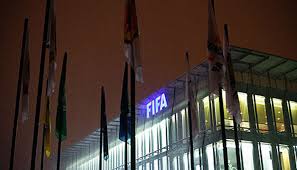By Paul Nicholson
August 20 – FIFA has taken steps with its six confederations to create a global club licensing framework that will set a minimum standards required by clubs in key areas like stadium safety, fan experience and youth football development. FIFA said the new licensing framework will be in place by the end of 2016.
Currently club licensing progammes vary between confederations, with some, like CONCACAF and CAF, only in their early stages of formation. FIFA’s plan is to bring continuity to the rules, though still allowing for regional variations.
“Stronger clubs mean a stronger foundation for global football. Club licensing is a priority for FIFA’s investment in the game and a crucial part of raising professional standards,” said FIFA Director of Member Associations and Development Thierry Regenass. “We are now working hand-in-hand with the six confederations and our member associations worldwide to implement this blueprint for the future of football.”
To be eligible for certain competitions clubs will need to meet the licensing conditions, of which key criteria include investment in training facilities, independent auditing of finances and greater transparency of club ownership.
FIFA outlined five areas where minimum standards have to be met:
• Sporting criteria e.g. clubs must have a youth development programme; clubs must promote fair play
• Infrastructure criteria e.g. clubs must have safe, comfortable stadiums for fans, families and media; clubs must have training facilities
• Personnel and administrative criteria e.g. clubs must have qualified coaches and medical staff and professional, well-educated management
• Legal criteria e.g. clubs must adhere to international statutes; club ownership must be transparent and fair
• Financial criteria e.g. independent auditing of club finances
Currently UEFA and the Asian Football Confederation (AFC) have well-established and successful club licensing programmes, CONCACAF and CAF are playing catch-up but have begun programmes. The OFC and CONMEBOL are scheduled to adopt regional standards before the end of 2016.
FIFA said in a statement that guidelines will “be tailored to suit the needs of national associations and clubs as part of FIFA’s football development priorities for the 2015-2018 financial cycle.”
Contact the writer of this story at moc.l1745120865labto1745120865ofdlr1745120865owedi1745120865sni@n1745120865osloh1745120865cin.l1745120865uap1745120865

